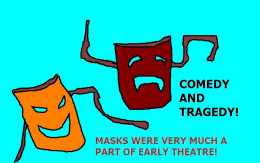Why do you think people who lived during the Victorian Era were more intelligent
- rainsanmartinposted 10 years ago
0
Why do you think people who lived during the Victorian Era were more intelligent than people today?
According to an article on Phys.com entitled: Researchers Suggest Victorian-Era People More Intelligent than Modern-Day Counterparts", a study was done that proved Victorians possessed higher intelligence than today's modern individual. The Victorians wrote letters by hand, often played a musical instrument and held a higher standard of excellence which was displayed in their work ethic and fashion. Pick up any book written in the late 1800's and observe the rich vocabulary and eloquence of speech. What could the reasons for societies gradual intellectual decline be in your opinion? This is all news to me. But I guess if you were one of the lucky few who had the privilege of an education so you could read and write...etc then I suppose it's true. But what about the 95% at the bottom of the social pile. Those young girls selling matches. Those boys working as chimney sweeps...how intelligent were they?
Occasionally one of the chimney sweeps you speak of is found as a skeleton in an old chimney. Lower class as you might say doesn't mean lower intelligence just lower resources.
But lower resources that include lower food supplies harm brain development and often with it, intelligence.
Sure, that's true. But in the Victorian era there were improvements in food and health. Bread and dripping was still the working class breakfast.
Unfortunately, a lot of our modern marvels create diversion and distraction. Back then people focused on those things because it was how they escaped from work/daily life. Today, people come home and get lost in television, games, internet etc. and this escapism has taken hold instead.
I have no problem believing that Victorian Era people (of certain privilege) were more intelligent. They engaged in activities that stimulate the full brain. It's been shown in studies for example that playing music, rather than just listening to it, activates and stimulates multiple areas of the brain.
Isn't it ironic that as our levels of technology increase, the intelligence of the population at large is in rapid decline. It makes me worry for future generations.Well said, "The culture of distraction" has elevated the decline. We need to use technology as a tool and keep disciplines that preserve our mind and spirit.
Three square meals a day were not definitely on as they are today. Less protection for the poor. Just earning your daily bread could be a good exercise in use of the brain.
- tsmogposted 10 years ago
0
A very interesting question. Without reading the article I could only speculate. Taking a peek at Phys.com I smile thinking of all the articles posted there. Surely that alone presents there is vast intelligence with this era and it is not in decline.
Thank you for sharing that link :-) Perhaps the standard of education may have been more rigid, especially compared to our country today, in addition to the fact that problem-solving had to be done manually, without the modern-day gadgetry which we've become reliant on.
As for intelligence level, I don't believe that the human intelligence potential has changed much since the earliest recorded man. It's just that later generations have the amassed knowledge accumulated from previous generations (i.e. the library, traditions, etc.).
This is, of course, merely my opinion on the matter.There was education by rote. Teacher verbally gives you the information and you repeat it like a parrot until it sticks. This gave way to more structured forms of education. Educating the poor began in Victorian times.
I don't necessarily think they were more intelligent but I think they had more to discover and thus did make more life changing and world altering breakthroughs which would make them appear intelligent - not that they weren't intelligent. I do feel we rely on social media, mobile phones etc and have become used to having everything at our fingertips which, whilst not lowering intelligence, is definitely making us more socially inept and impatient. If I need an answer I just google it, no research really. As for vocabulary, I think that goes with the mobile phone generation - it's easier to type "text talk" quickly on a small device so I think it's grown from there.

I doubt if the people who lived in the Victorian Era were more intelligent. I believe that what they were was more resourceful. Without television sets or television screens they had to make their own fun. Hence more people developed a continuing interest in the learning how to and the playing of musical instruments. Even those who knew they would never become professional had fun around the house or the neighborhood doing what they were able to do. The vocabulary may have been richer because there was a lot more amateur theater around as well as recitals and poetry reading. Again not all of it was on a professional level nor did it need to be. I don't know if society in general has declined intellectually. It has merely changed direction. Perhaps we do depend more on others for our entertainment. Perhaps 'reality' television is a sign that there has been some decline. Even so there is the richness of the internet where, like in Victorian times, people are urged to make their own fun. With the internet, however, you can communicate with people in various countries in seconds. As for hand writing, I still write letters to my novelist friend in New Zealand. Others no doubt still do the same. I believe we are richer in some ways, intellectually, and poorer in other ways.It depends largely on what group they're comparing. Are they comparing scientists of the time to scientists of today? Considering how much we've learned since, and the growth of easily accessible information, I would be hesitate to trust such a study (until more like it can be conducted). I'm not saying it's impossible, I'm just saying that it's very fashionable to say the current generation is unintelligent and a romanticized one of the past was better.
I think everyone has summed it up here. Looking toward the future, I do think we will say goodbye to what remains of things like Victorian style and manners. Ironically, it is only the business world, the political world or anything requiring the conscious use of body language and etiquette (even if only to gain trust or exude likeability) that remotely keeps traditional etiquette alive. Our audio-visual media outlets continue to promote faster speech, the increased use of slogans and clichés in our speech and the shortening attention spans that make reading more difficult. We will continue to see more people using movie or TV references to underscore their points, rather than using literary references. Real literature will be reduced to a form of high culture; not unlike classical music. It will be one of those things that everyone says they enjoy (but, honestly, how many people who say they listen to classical music choose only to listen to classical music as a preferred genre?). Kids are reading at lower levels than they were 30, 20 or even 10 years ago. Even the children's stories by Kipling are virtually unreadable by today's adults who know nothing of the historic context of the writing or even what on earth he is writing about. Then when one considers Chekov or Turgenev; just forget about it. The people of the future may be able to read through novels or plays written in the era, but they won't really understand them. Also, the internet has become a sort of Hyde Park where people just rant and rant all they want. Everyone seems to have a voice now at the cost of their ears.
Yes we do seem to have more of a voice. I have read Kim. I found it readable but oh so strange. It gives an insight into the British in 19th Century India.
You're talking about a small percentage, the cream of Victorian society. Most couldn't read or write until the Education Act in the 1880's made education compulsory from the age of 7 until the age of 12, when they usually went to work.
Thinking was generally stilted, driven by particular interests deemed suitable for young men of standing. The military followed the same pseudo-romantic reasoning, with Greek, Latin and a vocabulary oriented after an 'elevated' thought process.
In short the elite may have been well-educated and verbose, and possibly very sophisticated in that respect, but in practical terms it was the civil and mechanical engineers or industrialists who ruled the roost, many like George Stephenson and Richard Trevithick being self-taught and from a lowly background ('owd' George borrowed a number of Trevithick's ideas on 'auto-locomotion'). Robert Stephenson attended Edinburgh University for a Semester, paid by his father George. No more was considered necessary.
The only 'genius', fully university educated was Isambard Brunel, who impressed Victoria with his eloquence but was dogged by failure in several of his projects.Women were finally allowed to study in the more prestigious universities in Britain but that was in the last decade of the Victorian era. You are right. There was great education for some but not for all.
Peter Frost (2014) and Wm Briggs (2013) reported sampling bias in the 2013 study by Woodley, te Nijenhuisc & Murphy based on Irwins Silverman's 2010 meta-analysis of archives: IQ fell in Britain by 13 points since Victorian times. It was all about reaction time to a visual stimulus comparing Victorians w/ telegraph keys and modern folks w/ a computer mouse (an OK comparison, I think, except telegraph keys stick more often). In one test setting in the meta-analysis, the study compared University of Chicago students with museum visitors who paid to take the reaction test. Those groups are very different demographically.
Other looks (Armstrong 2014, Madison 2014) at the study find that women's "IQ" dropped significantly but men's really did not drop and moreover, the significant drop occurred between 1980 - 2000s, not between Victoria to today.
A number of doctors and medical scientists looked at the studies in 2014 (for example, to compare results with populations in Scotland and Sweden), and seemed to be losing interest in 2015. Briggs says, "My theory is that instead of IQs shrinking, people are increasingly able to find patterns in collections of meaningless dots (data points in the studies)."
The meta-analysis costs over $35 to read online, but I think my local university may have a copy. I'll look next visit there. I think the 2013 results need much more examination.
However, it's proven that playing musical instruments changes the brain to the better; but what % played music during Victoria and what % play instruments now? That's a good thing to look at in a new study. Exercising the fingers does exercise the brain as well - like the letter writing mentioned in the OP. That's another place to look - does texting do as well?Since Victorian times we've had several technological changes that changed the accent of education. Back then technology was largely steam-driven. During the time my Grandmother (1900-1989) lived men have been to the moon and fought two world wars
No, because only the elite could write things down.
The standard of literacy was writing your own name, and a large number of people could only scribble an X.
Then again, the intelligence scores of that time would be depressed by malnutrition during childhood and impact of disease on the brain. So their average intelligence, if measured across the population, would be artificially low because of all those who suffered scarlet fever, protein deficiency, iodine deficiency and so forth - in addition to lack of stimulation of the mind for many.
Related Discussions
- 20
Are you intimidated by someone with a higher education than you?
by rutley 10 years ago
Are you intimidated by someone with a higher education than you?Do you feel dumber, that you can't compete or just insecure that they know more than you?
- 10
Are Asian children more intelligent than American children. because their parent
by Audrey Selig 10 years ago
Are Asian children more intelligent than American children. because their parents are good role...models and they have respect for elders?
- 8
What ways are wealthy people FAR MORE INTELLIGENT than poor, even middle class p
by Grace Marguerite Williams 9 years ago
What ways are wealthy people FAR MORE INTELLIGENT than poor, even middle class people?
- 5
How are beautiful people more intelligent than people who not as beautiful?
by andrew savage 11 years ago
How are beautiful people more intelligent than people who not as beautiful?Are there genes for intelligence that correlate to the genes responsible for the design of the body?
- 20
Do you know someone who is smarter than you are, and how do you feel about that
by MarieLB 9 years ago
Do you know someone who is smarter than you are, and how do you feel about that person?EG:- You find yourself saying things like "She thinks she knows everything". In your head you hear the corollary "She DOES know everything and that is why she is so annoying."
- 17
In our educational system, A students are thought to be more intelligent and sha
by Grace Marguerite Williams 10 years ago
In our educational system, A students are thought to be more intelligent and sharper than B and Cstudents. A students are also told by teachers that they will be more successful in life than either B and/or C students. In fact, A students are THE ONES who are groomed and coached for success...
















